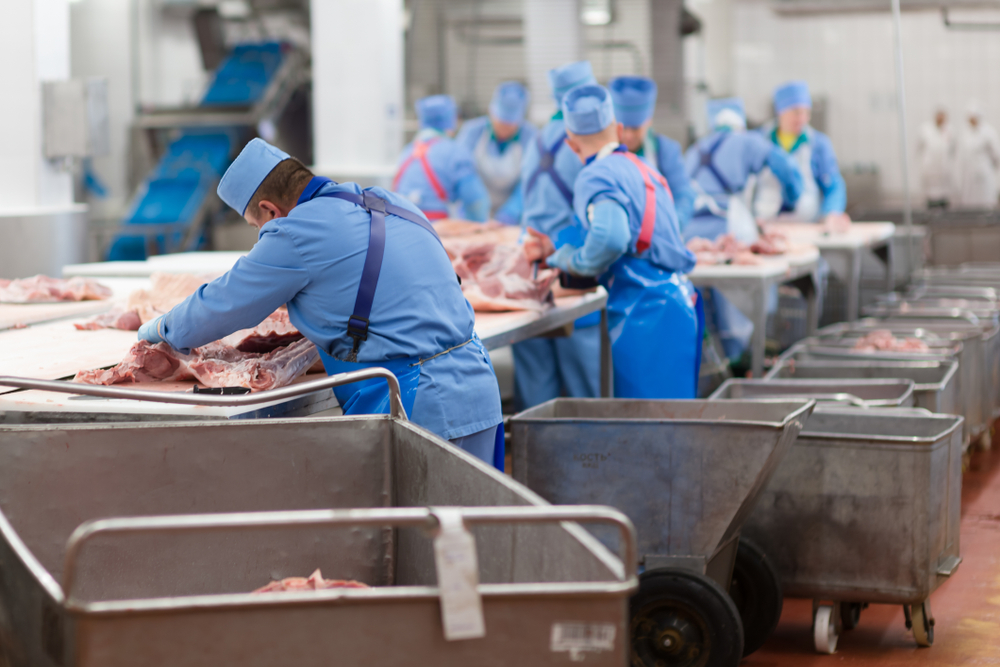The Occupational Safety and Health Administration (OSHA) announced June 20 it cited JBS Green Bay Inc. with four repeat, four serious, and two other-than-serious violations after a worker at a Wisconsin meat processing plant suffered crushing injuries to his right index and middle fingers while removing a shackle from a cow moving down a trolley line.
OSHA is seeking $227,786 in proposed penalties.
Agency inspectors found that JBS failed to ensure there was adequate guarding in place on the trolley line to protect workers from pinch points. Cited safety violations included electrical and fall hazards, hazard communication, and lockout/tagout.
While investigating the amputation injury, OSHA expanded its inspection under Region 5’s local emphasis program (LEP) for Wisconsin’s food manufacturing industry. Region 5 also has food manufacturing LEPs in Illinois and Ohio.
“Unfortunately, injuries to workers in the meat processing industry are common but they can be prevented when required safety procedures are followed,” Robert Bonack, OSHA’s Appleton, Wisconsin, area director, said in an agency statement. “JBS Foods is well aware of these typical industry hazards and of their legal obligation to provide employees with a safe and healthful workplace.”
Greeley, Colorado-based JBS Foods is a leading U.S. producer of beef, poultry, and pork, according to OSHA, and is a wholly owned subsidiary of Brazil’s JBS S.A., the world’s largest processor of fresh beef and pork.
Lockout/tagout (29 Code of Federal Regulations (CFR) §1910.147) and machine guarding (§1910.212) are two of OSHA’s top 10 most frequently cited standards. The lockout/tagout standard is the agency’s sixth most frequently cited standard, cited 1,977 times in fiscal year (FY) 2022, and the machine guarding standard is OSHA’s tenth most frequently cited standard, cited 1,370 times in FY 2022.
Ohio manufacturer faces $171K OSHA fine
The Quality Castings Company, a maker of gray iron and ductile iron castings in Orrville, Ohio, faces $171,884 in proposed fines after a mold machine operator suffered a right thumb amputation, OSHA announced June 20. The agency cited the company with a willful violation of the machine guarding standard and a serious violation of the lockout/tagout standard.
In an earlier near-miss incident, OSHA says an employee using the same machine avoided a similar injury 8 months before the amputation injury.
The Quality Castings Company failed to lock out the core mold machine’s operating parts during service and maintenance, which allowed the operator’s hand to become caught by the rotating mold while adjusting the machine’s flame, according to the agency. Inspectors found the company also failed to guard the machine and didn’t train workers on required safety procedures.
“After a near-miss on the same machine eight months earlier, the company should have re-evaluated the core mold machine’s operating and safety procedures,” Howard Eberts, OSHA’s Cleveland area office director, said in an agency statement. “Doing so could have prevented this worker from suffering a lifelong injury.”
According to OSHA, The Quality Castings Company, founded in 1933, produces gray iron and ductile iron castings for a variety of industries and employs about 350 workers.

